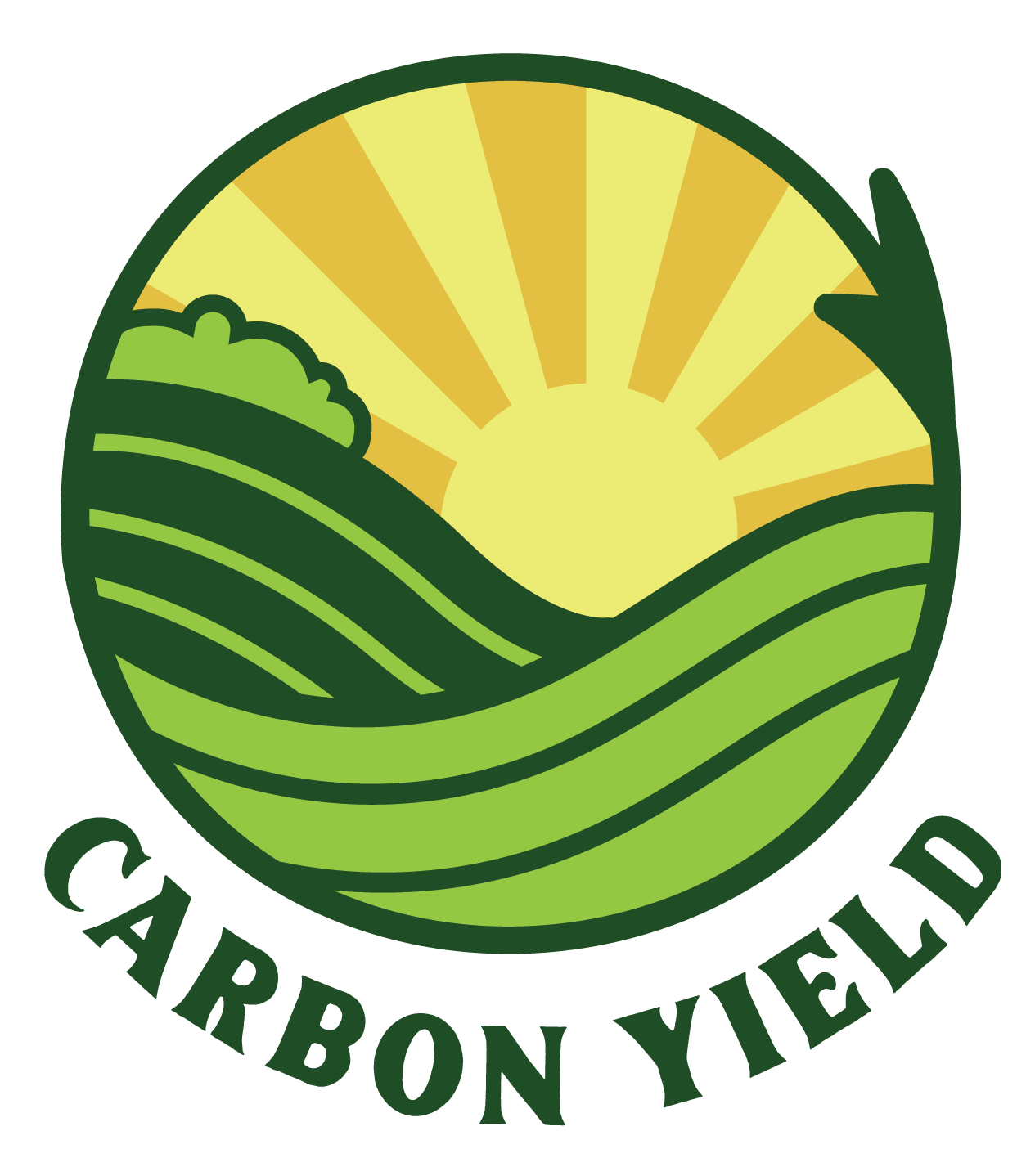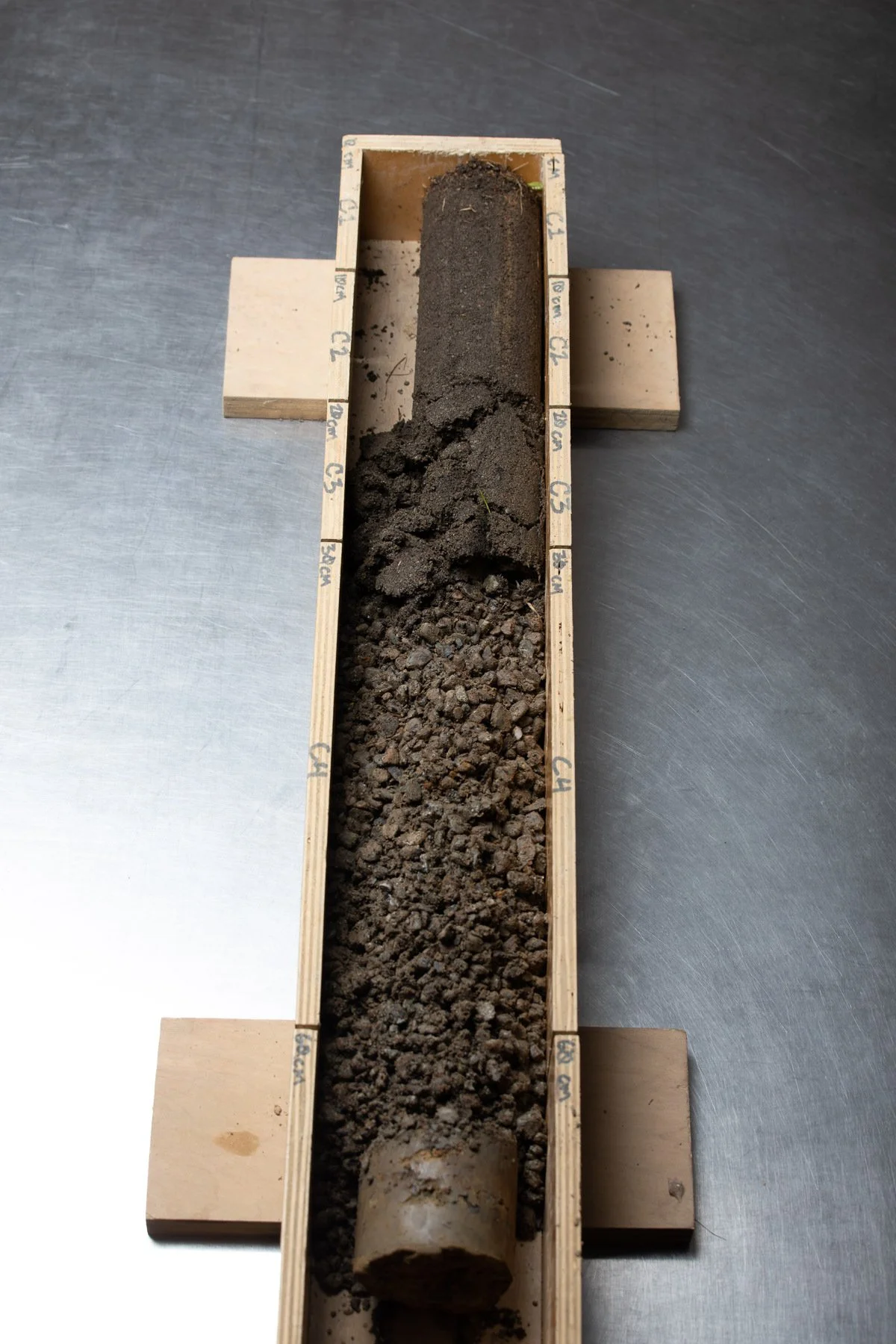Bridge corporate impact and farm income
Agricultural carbon markets are complex, fragmented, and evolving rapidly. Carbon Yield bridges the gap between scientific rigor and practical implementation, providing the expertise and infrastructure needed to navigate this landscape successfully. With deep agricultural knowledge, proven market experience, and established relationships across the supply chain—from local conservation districts to federal agencies like USDA—Carbon Yield delivers credible results that meet both producer needs and corporate climate commitments.
Carbon Yield partners with agricultural stakeholders to deliver scientifically rigorous carbon solutions through four core service areas:
Program Design & Administration
Carbon Yield creates and manages comprehensive carbon programs that seamlessly integrate financial incentives, technical assistance, impact measurement, and producer support to deliver measurable climate outcomes at scale.
Strategic Advisory
Carbon Yield guides government agencies, corporations, cooperatives, and NGOs in navigating the complex landscape of agricultural carbon markets, helping them develop effective strategies for participating in and implementing greenhouse gas (GHG) programs.
GHG Quantification & Modeling
Carbon Yield helps agricultural partners transform field data into credible carbon metrics through comprehensive GHG calculations, baseline development, and deployment of modeling innovations that meet rigorous market standards.
Practice Innovation & Validation
Carbon Yield advances promising climate-smart agricultural interventions—from regenerative grazing systems to soil amendments like biochar—by providing the scientific validation needed to integrate them into carbon markets and incentive programs.
Explore how Carbon Yield can help you deliver on your climate commitments.
Partnerships
Carbon Yield designs incentive and supply chain programs that preserve the best interests of farmers and ranchers while helping brands achieve their climate goals. As a thought leader collaborating with nonprofits, universities, governments, and international partners, Carbon Yield creates programs that generate meaningful additional farm income and reduce risk for producers transitioning to more regenerative practices.
McDonald’s USA
Carbon Yield, along with McDonald’s USA, National Fish and Wildlife Fund (NFWF), and Kateri are launching a new Grassland Resilience and Conservation Initiative. Carbon Yield leads and manages this partnership, which will facilitate environmental impact across up to four million acres of grazing lands. The more than $200 million investment from McDonald’s USA, NFWF, and key McDonald’s U.S. suppliers represents the Golden Arches’ most significant investment in regenerative agriculture in company history and will unlock an additional federal conservation funding across ranching communities in as many as 38 states. This work bridges the divide between traditional conservation and market-based sustainability programs, enabling the restoration and protection of new lands while deploying novel monitoring and accounting solutions that quantify and claim the ecosystem outcomes generated by our ranch partners.
Climate TRACE
Carbon Yield is both a founding coalition member of Climate TRACE (climatetrace.org) and the agricultural sector lead. The coalition was founded by formative climate leaders, including former Vice President Al Gore, the Rocky Mountain Institute, and Watttime, to develop a comprehensive, open-access global emissions database. In this leadership role, Carbon Yield manages global agricultural research teams at leading agricultural science institutions, including the Bruno Basso Lab at Michigan State University and Rudiyanto at the University of Malaysia Terengganu.
This collaboration produces regular assessments of greenhouse gases across key agricultural systems, including croplands, rice cultivation, and livestock operations. Carbon Yield helps deliver detailed emissions tracking for agricultural activities globally through advanced monitoring technologies and data analysis. Research findings contribute to Climate TRACE's mission of providing transparent, accessible, and actionable climate data, enabling policymakers, researchers, and industry stakeholders to address agricultural GHG emissions.
Dairy Management, Inc.
Carbon Yield partners with dairy cooperatives and processors to help them develop and navigate emerging GHG programs and cost-share resources. Dairy Management Inc. (DMI), the U.S. Dairy trade association, collaborates with Carbon Yield on creating comprehensive resources that help small dairy cooperatives and processors navigate emerging Scope 3 GHG opportunities and cost-share incentive programs within their supply chains.
Through this collaboration, Carbon Yield conducts stakeholder interviews and leverages its experience in the dairy industry to create accessible educational materials. These materials include white papers, presentations, and multimedia content. The project emphasizes practical application by incorporating feedback from small and medium-sized cooperative stakeholders. This ensures the final resources effectively support cooperative and processor staff in building and participating in GHG programs that align with their business objectives and ultimately benefit their farmer suppliers.
Grassland 2.0
Grassland 2.0 (grasslandag.org) and Carbon Yield are reshaping regenerative dairy through innovative heifer grazing systems that benefit farmers, animals, and the planet. The partnership transforms how dairy heifers are raised, moving them from confinement to well-managed pastures in a manner that is both practical and profitable. The approach reduces feed costs by up to 80%, improves animal health and milk production, and delivers powerful environmental benefits, including carbon sequestration, enhanced biodiversity, and improved water quality. Together, Grassland 2.0 and Carbon Yield are making regenerative grazing accessible to dairy producers, custom grazers, and anyone with livestock experience by creating new revenue streams and climate-smart dairy systems for the future.
Microbial Soil Solution
Carbon Yield is partnering with an innovative soil health company to scientifically validate the carbon sequestration impacts of their soil additive across nearly one million acres of U.S. farmland. The company’s biological soil product shows promising results in soil core samples. Carbon Yield brings the rigorous GHG modeling and comprehensive impact analysis needed to transform this data into credible, market-ready carbon credits. Working alongside Michigan State University researchers, Carbon Yield is developing methodologies to help baseline cropping scenarios, run multi-model ensemble simulations, and conduct full GHG accounting to provide the scientific validation that carbon credit buyers and rating agencies require.
Michigan Climate Smart Farm Project
The Michigan Climate Smart Farm Project is revolutionizing how small and diversified farms contribute to climate solutions while building stronger, more profitable operations. This initiative brings together farmers, conservation districts, including the Michigan Association of Conservation Districts, and research partners across four Michigan counties to create the state's first pilot verification program.
Four types of certifications help farmers transition to climate-friendly practices, such as implementing cover crops, improving grazing management, and utilizing renewable energy, while earning recognition and premium prices for their efforts. Unlike existing programs that often overlook smaller operations, this project supports farms and urban growers with less than 200 acres, providing hands-on technical assistance, financial incentives of up to $50 per acre, and access to new markets that value climate-smart products.
Participating farmers not only reduce their environmental impact and cut input costs, but also gain access to a compelling new brand that helps them earn premium prices when selling directly to consumers who increasingly want to support regenerative agriculture.
Michigan Department of Agriculture and Rural Development
Carbon Yield is partnering with the Michigan Department of Agriculture and Rural Development (MDARD) to develop a comprehensive market framework that connects Michigan's regenerative farmers with corporate buyers seeking sustainable commodities and credible greenhouse gas reductions. Together with Michigan State University, Carbon Yield is conducting extensive buyer analysis across food and agricultural companies, mapping Michigan's agricultural supply chains and creating detailed greenhouse gas baselines for major commodity crops.
The project will include the delivery of regenerative producer and buyer databases, reports on environmental outcomes, and a strategic implementation toolkit. These tools will enable MDARD to launch coordinated regenerative agriculture programs, creating new revenue opportunities for Michigan farmers while helping companies meet their climate and sourcing commitments through regenerative practices.
Michigan Regenerative Dairy Program
The Michigan Regenerative Dairy program is pioneering a new approach to help dairy farmers reduce their environmental impact while building stronger, more profitable operations. The program partners with the Michigan Milk Producers Association, a cooperative representing over 1,600 dairy farmers, and the National Association of Conservation Districts. Together, they deploy $5-10 million in financial assistance that helps producers implement stewardship practices. These practices include improved feed management, enhanced manure systems, and sustainable crop production techniques.
Unlike traditional programs that end when grant funding runs out, this hybrid model creates lasting incentives. It connects farmers to major brands such as Ben & Jerry's that are committed to sourcing climate-friendly dairy products. This ensures farmers continue to benefit financially from their environmental improvements for years to come.
The program aims to prevent 45,000-80,000 tonnes of greenhouse gas emissions while also improving water quality and strengthening rural economies. This demonstrates that dairy farming can be both profitable and climate-conscious. By collaborating with trusted local conservation districts and utilizing cutting-edge monitoring technology, the initiative enables dairy farmers to participate more easily in the fight against climate change. It also helps them secure premium markets for their milk.
USDA
Carbon Yield supports the Office of the Chief Economist (OCE) of the USDA in implementing the Growing Climate Solutions Act (GCSA) and in its broader engagement with greenhouse gas markets. The GCSA legislation instructed the USDA to produce a report documenting agricultural and forestry project activity in carbon markets, make recommendations on how the USDA can advance opportunities for landowners and operators in these markets, and develop a certification program to list high-quality protocols, verifiers, and technical assistance providers.
In partnership with the consulting firm Lindahl Reed, Carbon Yield supports the USDA's implementation of GCSA. This partnership involves co-authoring a public report that assesses the state of agricultural and forestry opportunities in carbon markets. Carbon Yield also provides regular strategic guidance and analytical support to OCE in their examination of emerging offset protocols and technologies.
Let’s discuss your sustainability roadmap or strategy.














